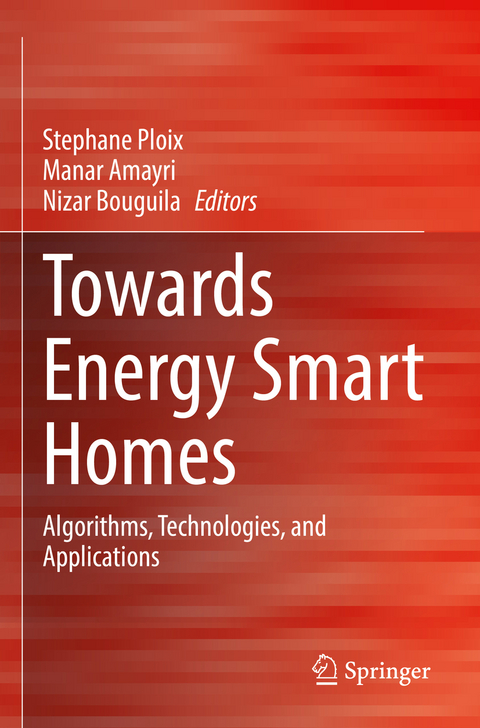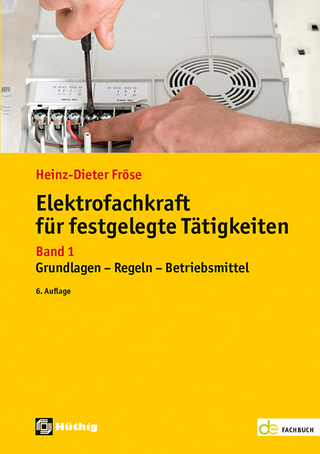
Towards Energy Smart Homes
Springer International Publishing (Verlag)
978-3-030-76479-1 (ISBN)
This book exemplifies how smart buildings have a crucial role to play for the future of energy. The book investigates what already exists in regards to technologies, approaches and solutions both with a scientific and technological point of view. The authors cover solutions for mirroring and tracing human activities, optimal strategies to configure home settings, and generating explanations and persuasive dashboards to get occupants better committed in their home energy managements. Solutions are adapted from the fields of Internet of Things, physical modeling, optimization, machine learning and applied artificial intelligence. Practical applications are given throughout.
lt;p> Stéphane Ploix is a Professor at the Grenoble Institute of Technology in the Energy, Water and Environment department. After a Master of Technology in mechanics and electricity from a French "grande école[MOU1] " and a Master of Sciences in Control, he obtained in 1998 a Ph.D. from the Institute National Polytechnique de Lorraine in control engineering and signal processing. He became a full Professor in 2009. From the very beginning his researches set at the interface of engineering, control and computer sciences. He started by extending algorithms for diagnostic analysis coming from artificial intelligence community to different engineering area, including sensor networks for hydrology, water networks and photovoltaic farms. In 2006, he decided to redirect his researches in energy smart-building and to study how computers and control sciences could contribute to this new application area. His researches led to the development of the G-homeTech software for global anticipative model based energy management of buildings. In 2012, he was part of the team that won the Solar Decathlon Europe worldwide competition with the CANOPEA building equipped with the G-homeTech software. He is one of the founders of the Vesta-System company that markets applications for building energy management. Then, his interest turned to human-machine cooperation in building energy management: how to get the best from occupants and from smart systems thanks to cooperative mechanisms? He has been involved in various industrial projects with small and big companies and institutions such as EDF, CSTB, Orange, CEA, Schneider Electric and Engie.
Manar AMAYRI is a researcher at CNRS in G-SCOP lab (Sciences pour la conception, l'Optimisation et la Production), her work as a postdoctoral fellow is part of a French national project on building performance mamed COMEPOS. This project focuses on « Positive Energy » detached houses. She's developing a tool to calculate usage indicators in different sites. She obtained her Ph.D. degree from Grenoble Institute of Technology in energy smart-buildings in 2017 and a master degree in smart grids and buildings, ENES3, INP-Grenoble (Institute National Polytechnique de Grenoble) in 2014, She has also a master degree in electrical power systems, Power department, Damascus University. and a Bachelor degree in power engineering from Damascus university, Syria. Her current research interests focus on developing interactive approaches based on machine learning algorithms applied to different smart buildings related tasks (e.g. occupancy estimation, activity recognition ,etc).
Introduction.- Smart grids, districts and energy smart homes.- Urban modeling and analytics in a smart context.- What kind of technologies for Smart-Homes.- Services for energy smart home.- Modeling and calibration for energy management in smart-places.- Machine Learning: a fundamental tool for smart-places.- Estimate building system state.- Disaggregate loads to analyze human behavior predicting energy demand.- Determine the best actions.- Generate explanation.- Human machine interface (HMI).- Diagnose appliance and sensor faults but also misbehavior.- Tools for Energy Management system.- Conclusion.
| Erscheinungsdatum | 15.11.2022 |
|---|---|
| Zusatzinfo | XVI, 620 p. 331 illus., 292 illus. in color. |
| Verlagsort | Cham |
| Sprache | englisch |
| Maße | 155 x 235 mm |
| Gewicht | 961 g |
| Themenwelt | Technik ► Elektrotechnik / Energietechnik |
| Technik ► Nachrichtentechnik | |
| Schlagworte | Activity prediction and smart homes • Activity recognition and smart homes • Artificial intelligence and smart homes • Data mining and smart homes • Energy management and smart homes • Internet of Things and smart homes • Machine learning and smart homes • Occupancy estimation and smart homes • smart homes • smart meters |
| ISBN-10 | 3-030-76479-6 / 3030764796 |
| ISBN-13 | 978-3-030-76479-1 / 9783030764791 |
| Zustand | Neuware |
| Haben Sie eine Frage zum Produkt? |
aus dem Bereich


